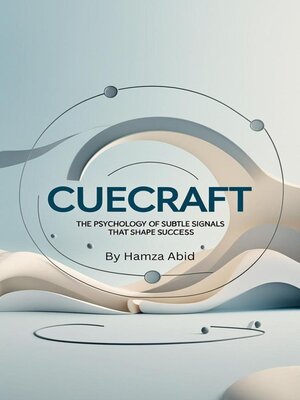
Sign up to save your library
With an OverDrive account, you can save your favorite libraries for at-a-glance information about availability. Find out more about OverDrive accounts.
Find this title in Libby, the library reading app by OverDrive.



Search for a digital library with this title
Title found at these libraries:
| Library Name | Distance |
|---|---|
| Loading... |
I would like to put the discussion in scholarly terms: CueCraft is definitely not yet another self-help manual. It is a true paradigm shift in the way that consciousness is perceived, of the unspoken, intangible cues, both internal and external, which exert a silent control over attitude, behavior pattern and finally, success. Written by my colleague, psychologist Hamza Abid, the text relies on the latest research in cognitive science, behavioral economics, and social psychology, all presented in a perfectly approachable form.
The strength of Abid is how he combines empirical research with anecdotal evidence and makes even a complicated construct understandable. He starts by separating the three factors that have the most impact on behavior; self-talk, environmental context, and temporal timing. Every chapter that follows goes on to shed light on these variables in practical terms - priming morning rituals, engineering productive spaces or designing digital architectures that guide human behavior towards certain predetermined ends. It is similar to a warm TED Talk, it has a less hostile attitude, and most importantly, it possesses more in-depth knowledge of the subject.
Even though the book is relevant in most cases, it will connect with the students, entrepreneurs, creative experts, and anyone willing to have a more deliberate association with their daily activities. At the end, the readers find themselves in a position to craft their psychological prompts, create conducive space, and develop habits that transform success into a casual experience other than a high-flying dream. Altogether, CueCraft empowers the reader to be the designer of his or her own mind, and it focuses on the issue of agency and malleability and, at the same time, bases on the solid empirical investigation.







